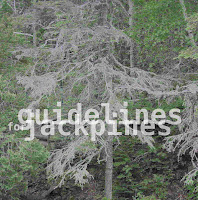I have resisted the temptation to start a blog for quite a while, but either I have decided that my ideas are now important enough to be read (theoretically) or I have realized, more probably, that it might be useful to set out some of my impressions for my own later reference.
I plan to post my poems as well, and maybe some of my music if I figure out how, which isn't terribly likely.
***
I'm startint to get rather sick of Proust's Remembrance, which I have been reading now for about seven months. At this point in the narrative (vol. 4), Marcel is examining jealousy in love, which was also a relatively large part of the content in vol. 1. While I am in fact prone to jealousy, his narrative goes places foreign to my experience. I have nothing against pure imagination as the sole contact between reader and text/author, but find it difficult to relish this particular interaction.
Before I go farther, I suppose I should set forth my current idea about reading literature--more particularly the value of that act. The context for my view, though not perhaps a necessary one, is the philosophical problem of view (I'm not any sort of philosopher, or even a particularly astute student of philosophy, so please excuse the following). That is, the problem of the subjective and objective, the epistemolgical problem in particular: how does one know that which is, it seems, outside oneself (the objective). I suppose the problem concerns the subjective as well. I won't get into it here.
My concept, probably better expressed by a thousand people as many years ago, for the "solution" of this problem (not in the philosophical sense a solution, but a sort of salve for the pain it causes to my mind or soul) I call imaginative or poetic knowing. Wait...a part of my solution, I should say, i.e., poetic knowing is one of the types of knowing often overlooked, and which, I would suggest, is not the type of knowing which "created" the problem, or better, in reference to which the problem has here been briefly stated. Other types of knowing important to a sort of epistemological holistic healing would include, I think, for instance the knowing mentioned in the New Testament of the Bible: the renewing of one's mind in a spiritual sense by a Christian rebirth and subsequent indwelling. And there are no doubt other ways to categorize knowing (not to be confused with "multiple intelligences").
Poetic knowing, to me, is the way in which we gauge the quality, so to speak, of art of many types. It is poetic knowing which causes us to believe in their value, and it is poetic knowing which inspires the artist to create. Creativity itself is a separate thing, I would argue (an artist who has much creativity but little knowing will evidence this difference). Poetic knowing, I think, is related to memory and experience, which are its troves. And of course, its realm is in some sense the imagination. If you combine the above elements, you get art as a by-product of the attempt to form it into knowlege or more properly wisdom, hence poetic knowing. Of course, reading literature is a sort of shortcut to poetic understanding, though it is only reasonable to assume that one must have the raw materials of actual experiences and so forth before one could refine poetic understanding, either from reading lit. or simply as the mind's act of reflection.
The ideas expressed above I consider part of a solution to the philosophical problem of knowing, because, whether I have been able to express it or not, I think they help provide a reason for the amount and type of knowlege we know that we do posses. But whether "poetic knowing" helps solve the problem or not is, after all, I suppose, not the main issue (though the that may be important to me, perhaps my above idea is useful only to me in that respect) for poetic knowing, since that problem may not absolutely be within its realm. The main issue is whether the idea of poetic knowing helps explain the phenomenon of reading literature and gaining thereby. It is presumably in that context that my idea of poetic knowlege would be formed naturally, though, as I mentioned, perhaps the main context of application for me is the epistemological problem, if only since that is something I have been thinking about recently.

